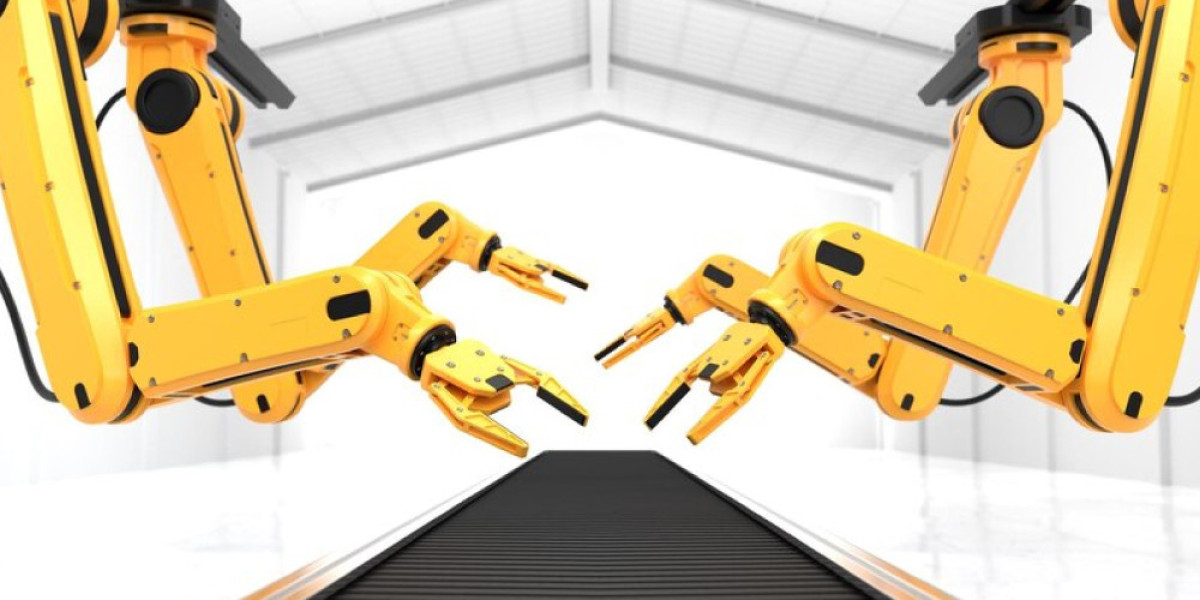The Machine Tools Industry plays a crucial role in the global manufacturing landscape, supplying essential equipment for various applications. This industry is characterized by continuous innovation, with companies investing in advanced technologies and automation solutions to meet evolving customer demands. The integration of smart technologies, such as IoT and AI, is enhancing operational efficiency and productivity. As the industry adapts to changes in consumer preferences and manufacturing practices, it is expected to witness substantial growth driven by the need for high-quality and precision-engineered products.
The global machine tools market plays a vital role in the foundation of industrial manufacturing. Machine tools are essential for shaping, cutting, and finishing metal and other materials, enabling the production of machinery, vehicles, and consumer goods. The market includes a wide range of tools such as milling machines, lathes, drilling machines, grinders, and CNC systems. The rise of industrial automation, precision engineering, and technological innovation has significantly influenced market expansion.
Market Drivers and Dynamics
Increasing demand from the automotive, aerospace, and heavy machinery industries continues to propel the market forward. The growing emphasis on precision manufacturing, high productivity, and cost efficiency has encouraged industries to adopt advanced machine tools. Additionally, the integration of CNC (Computer Numerical Control) and AI-driven systems has transformed manufacturing operations by enhancing accuracy and reducing manual intervention.
Technology Trends
Automation is at the forefront of market evolution. The transition from conventional to CNC-controlled machines enables improved quality, flexibility, and production speed. Smart manufacturing and Industry 4.0 technologies, such as real-time monitoring and predictive maintenance, are reshaping how machine tools operate. Additive manufacturing and hybrid machines, which combine additive and subtractive processes, are emerging as game changers for complex part production.
Application Insights
Machine tools serve diverse industries. In automotive manufacturing, they are crucial for engine blocks, transmission parts, and chassis components. Aerospace applications demand high-precision cutting for turbine blades and airframe structures. Additionally, the energy, construction, and electronics sectors rely heavily on machine tools for fabricating key components. The rise in metal additive manufacturing is further expanding their application scope.
Regional Landscape
Asia-Pacific dominates the market, led by industrial giants like China, Japan, and South Korea. Europe follows with a strong focus on innovation and advanced engineering, particularly in Germany and Italy. North America’s market growth is driven by technological adoption and the revival of domestic manufacturing. Meanwhile, emerging markets in Latin America and the Middle East are steadily increasing investments in industrial infrastructure.
Challenges and Opportunities
Despite strong demand, the market faces challenges such as high capital investment, maintenance costs, and skilled labor shortages. However, opportunities abound through digital transformation, automation, and sustainable manufacturing practices. The increasing use of lightweight materials and precision machining in electric vehicles also opens new avenues for growth.
Future Outlook
The machine tools market is set for steady expansion, supported by industrial modernization and technological progress. The convergence of robotics, data analytics, and IoT will redefine production efficiency, making machine tools an integral part of future manufacturing ecosystems.
FAQs
What are machine tools used for?
They are used for shaping, cutting, and finishing metal and other materials in manufacturing.Which industries drive demand for machine tools?
Automotive, aerospace, and heavy machinery industries are the primary drivers.What technologies are shaping the future of machine tools?
CNC automation, AI, and smart manufacturing are leading the next phase of innovation.
More Related Reports:








